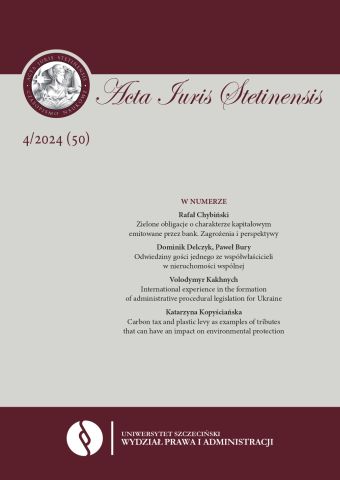Realizacja prawa do obrony przez oskarżonego podczas zdalnego uczestnictwa w rozprawie
Realizing rights of defense by the accused remote participation in trial
Author(s): Szymon StaszakSubject(s): Law, Constitution, Jurisprudence, Sociology of Law, Commercial Law, Administrative Law
Published by: Wydawnictwo Naukowe Uniwersytetu Szczecińskiego
Keywords: criminal proceedings; informatization of criminal proceedings; rights of defense; remote trial; procedural safeguards
Summary/Abstract: The participation of the accused in the trial during criminal proceedings is undoubtedly an important part of their exercising this right. During a trial, the accused will not only have the opportunity to give his explanations, but can also actively participate in the course of the trial and have the opportunity to learn directly about the content of the evidence taken. The recent COVID-19 pandemic-related amendment to the criminal procedure introduced new measures for the defendant’s participation in the trial by means of technical devices, so that the defendant’s participation in an on-site trial will not be necessary in every situation. The new provisions have largely received criticism from legal scholars and commentators. They often cite that these novel instruments introduce disproportionate restrictions on the accused’s right of defense and the principle of directness. They are significantly reduced with participation by means of technical devices. Legal writers are particularly interested in, and express most reservations towards, the issue of the code allowing remote hearings in a situation where the accused is deprived of liberty for reasons not related to the ongoing proceedings. There are reasonable doubts about whether it does not unduly restrict the defendant’s rights in the criminal process. The present work primarily uses the method of interpretation of provisions of the Constitution of the Republic of Poland and laws, in particular the Code of Criminal Procedure. In addition, literature and judicial decisions pertaining to the subject matter concerned are analysed to draw conclusions and make de lega ferenda postulates.
Journal: Acta Iuris Stetinensis
- Issue Year: 2024
- Issue No: 50 (4)
- Page Range: 133-145
- Page Count: 13
- Language: Polish

